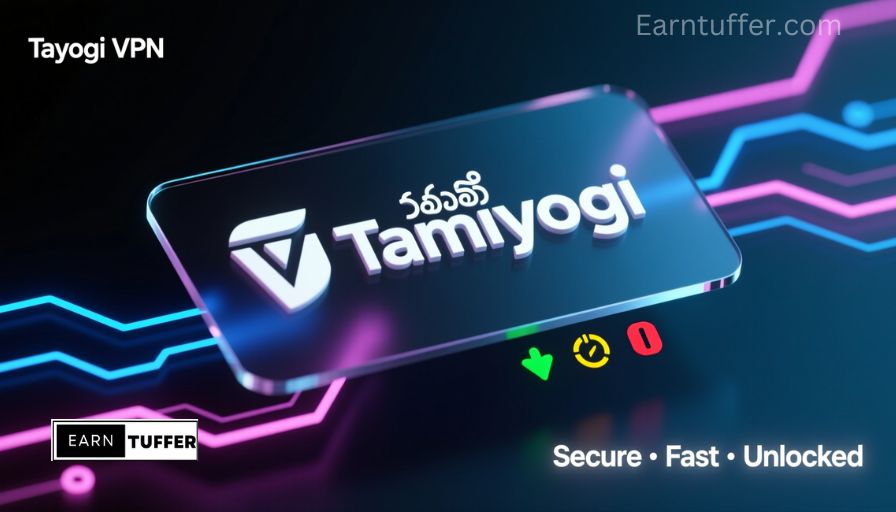Tamilyogi is a widely known online platform that provides unauthorized access to Tamil-language movies, TV shows, and regional Indian content, often shortly after theatrical or digital release. While it has gained popularity for its extensive library and user-friendly interface, the site operates outside legal copyright frameworks. As a result, Tamilyogi is frequently blocked by internet service providers (ISPs) in India and other countries due to persistent copyright violations.
Because of these blocks, users often turn to tools like VPNs (Virtual Private Networks) or proxy servers in an attempt to bypass restrictions and access the site. However, this raises important questions about legality, cybersecurity, and ethical consumption of digital media.
Why Do People Use a VPN with Tamilyogi?
A VPN masks a user’s real IP address by routing internet traffic through a remote server in another location. For Tamilyogi users, this serves two main purposes:
- Bypassing geo-blocks: Many ISPs in India, the UK, Australia, and the Middle East actively block Tamilyogi domains. A VPN can make it appear as though the user is connecting from a region where the site isn’t restricted.
- Enhancing privacy: Some users believe a VPN offers anonymity while accessing questionable sites.
However, it is critical to understand that using a VPN does not make illegal activity legal. Accessing pirated content remains a violation of copyright law, regardless of the tools used to access it.
Legal Status of Tamilyogi and VPN Use in India
In India, Tamilyogi has been repeatedly targeted under the Information Technology Act and Copyright Act. Courts have ordered ISPs to block the site and its numerous mirror domains due to rampant distribution of pirated films. While VPNs themselves are legal in India as of 2025, their use to access banned or illegal content can attract legal scrutiny.
Moreover, the Indian government now requires VPN providers with physical servers in the country to store user logs for up to five years, which could compromise anonymity if authorities request data. This means that even “secure” browsing may not be private in the context of accessing prohibited platforms like Tamilyogi.
Common Misconceptions About Tamilyogi VPNs
Many online guides promote “Tamilyogi VPNs” as safe and foolproof solutions. In reality:
- No VPN can guarantee immunity from legal consequences if you’re engaging in copyright infringement.
- Free VPNs often lack encryption, log user activity, or inject ads, increasing exposure to malware.
- Proxy sites and “Tamilyogi.cc” mirrors are equally risky, as they frequently host malicious scripts or phishing links.
Some articles even suggest using a VPN to access legitimate Tamil streaming services like Sun NXT or SonyLIV instead, highlighting a safer, legal alternative to piracy.
Cybersecurity Risks of Accessing Tamilyogi
Beyond legal concerns, Tamilyogi poses significant cybersecurity threats:
- Malware distribution: Pop-ups and download links often contain trojans, ransomware, or crypto-miners.
- Data harvesting: Fake “play” buttons and ad redirects can steal login credentials or payment info.
- Phishing scams: Mirror sites mimic legitimate platforms to trick users into entering personal details.
A VPN may hide your IP address, but it does not protect against infected files or deceptive websites. Only avoiding such platforms altogether eliminates these risks.
Ethical and Industry Impact
The Tamil film industry loses millions annually due to piracy. Platforms like Tamilyogi undermine creators, distributors, and theater owners who rely on legitimate revenue. In 2024 alone, several high-profile Tamil films were leaked on such sites within hours of release, prompting stronger enforcement actions.
Supporting legal streaming services not only ensures better video quality and safety but also sustains the ecosystem that produces the content fans love.
Safer Alternatives to Tamilyogi
For those seeking Tamil entertainment legally, several licensed platforms offer affordable and secure options:
| Platform | Content Type | Subscription Cost (Approx.) |
|---|---|---|
| Sun NXT | Movies, TV serials, live TV | ₹99–₹299/month |
| SonyLIV | Regional films, originals | ₹299/month |
| Amazon Prime Video | Tamil movies & series | Included with Prime |
| Disney+ Hotstar | New releases, classics | ₹299–₹1,499/year |
These services are accessible globally and often include subtitles, HD streaming, and multi-device support, without legal or security risks.
Final Thoughts
While the term “Tamilyogi VPN” is commonly searched, it represents a shortcut with serious consequences. A VPN may unblock the site, but it cannot unblock legality, ethics, or safety. In 2025, with robust legal streaming alternatives available, there is little justification for risking fines, malware, or supporting digital theft.
True digital freedom lies not in bypassing laws, but in making informed, responsible choices that protect both users and creators.
Frequently Asked Questions (FAQs)
Q1: Is Tamilyogi legal in India?
A: No. Tamilyogi distributes pirated content and is blocked by court order in India under copyright laws.
Q2: Can I get in trouble for using Tamilyogi with a VPN?
A: Yes. While VPNs are legal, using them to access banned or illegal content may still lead to legal consequences, especially if your ISP or authorities detect repeated violations.
Q3: Are free VPNs safe for Tamilyogi?
A: No. Free VPNs often lack security, sell user data, or contain malware. They offer little real protection.
Q4: What’s the difference between a proxy and a VPN for Tamilyogi?
A: A proxy only reroutes web traffic without encryption, while a VPN encrypts all internet activity. However, neither makes piracy legal.
Q5: Where can I watch Tamil movies legally?
A: Use licensed platforms like Sun NXT, SonyLIV, Amazon Prime Video, or Disney+ Hotstar for safe, high-quality Tamil content.
⚠️ Disclaimer
This article is for educational purposes only. Accessing pirated content is illegal in most regions.
